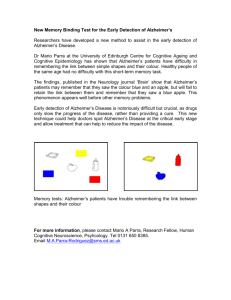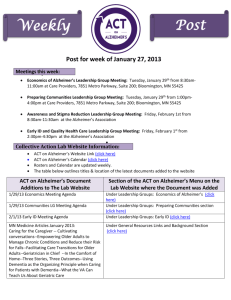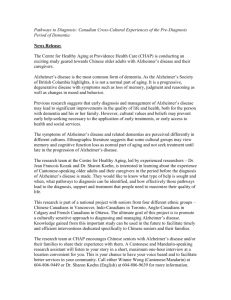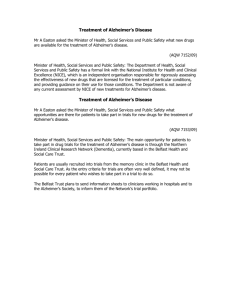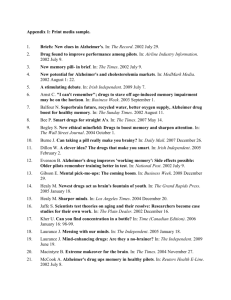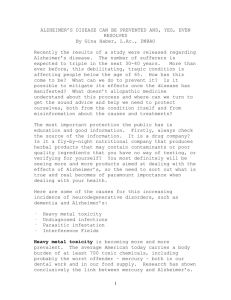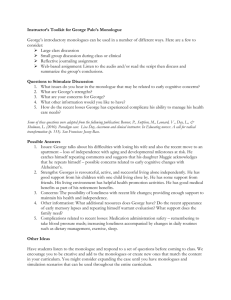Click here
advertisement
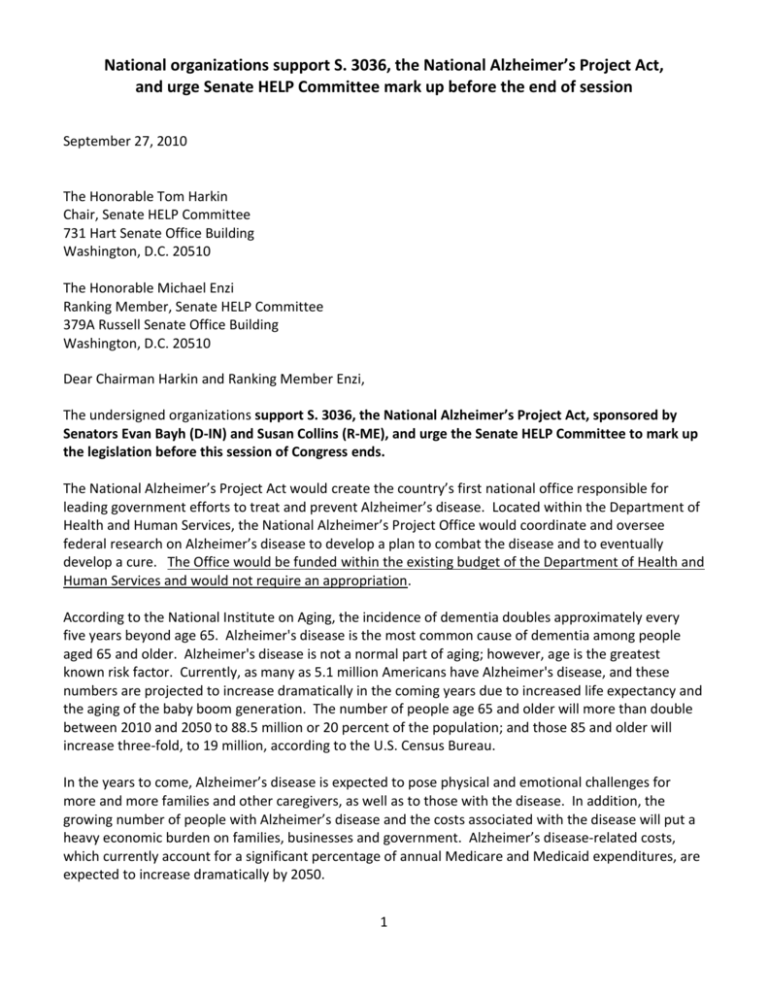
National organizations support S. 3036, the National Alzheimer’s Project Act, and urge Senate HELP Committee mark up before the end of session September 27, 2010 The Honorable Tom Harkin Chair, Senate HELP Committee 731 Hart Senate Office Building Washington, D.C. 20510 The Honorable Michael Enzi Ranking Member, Senate HELP Committee 379A Russell Senate Office Building Washington, D.C. 20510 Dear Chairman Harkin and Ranking Member Enzi, The undersigned organizations support S. 3036, the National Alzheimer’s Project Act, sponsored by Senators Evan Bayh (D-IN) and Susan Collins (R-ME), and urge the Senate HELP Committee to mark up the legislation before this session of Congress ends. The National Alzheimer’s Project Act would create the country’s first national office responsible for leading government efforts to treat and prevent Alzheimer’s disease. Located within the Department of Health and Human Services, the National Alzheimer’s Project Office would coordinate and oversee federal research on Alzheimer’s disease to develop a plan to combat the disease and to eventually develop a cure. The Office would be funded within the existing budget of the Department of Health and Human Services and would not require an appropriation. According to the National Institute on Aging, the incidence of dementia doubles approximately every five years beyond age 65. Alzheimer's disease is the most common cause of dementia among people aged 65 and older. Alzheimer's disease is not a normal part of aging; however, age is the greatest known risk factor. Currently, as many as 5.1 million Americans have Alzheimer's disease, and these numbers are projected to increase dramatically in the coming years due to increased life expectancy and the aging of the baby boom generation. The number of people age 65 and older will more than double between 2010 and 2050 to 88.5 million or 20 percent of the population; and those 85 and older will increase three-fold, to 19 million, according to the U.S. Census Bureau. In the years to come, Alzheimer’s disease is expected to pose physical and emotional challenges for more and more families and other caregivers, as well as to those with the disease. In addition, the growing number of people with Alzheimer’s disease and the costs associated with the disease will put a heavy economic burden on families, businesses and government. Alzheimer’s disease-related costs, which currently account for a significant percentage of annual Medicare and Medicaid expenditures, are expected to increase dramatically by 2050. 1 The bipartisan National Alzheimer’s Project Act follows through on a key recommendation from the Alzheimer’s Study Group, which issued a report in 2009 calling on Congress to create a national office dedicated to addressing the disease. We urge the Senate HELP Committee to please mark up S. 3036 before this session of Congress ends. Thank you for considering our views, and please do not hesitate to contact Susan Peschin, Vice President of Public Policy for the Alzheimer’s Foundation of America at 202-466-0590 or email speschin@alzfdn.org if you have any questions or would like additional information. Sincerely, Alliance for Aging Research Alzheimer’s Foundation of America American Academy of Neurology American Association of Homes and Services for the Aging Critical Path Institute Direct Care Alliance National Association of Area Agencies on Aging National Family Caregivers Association The National Consumer Voice for Quality Long-Term Care (formerly NCCNHR) USAgainstAlzheimer’s Volunteers of America 2

